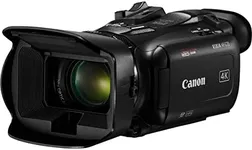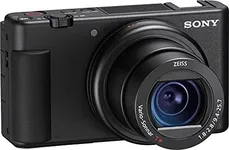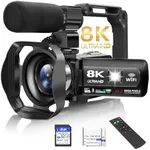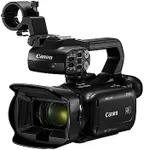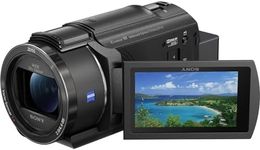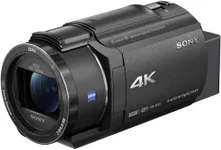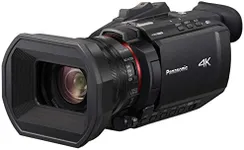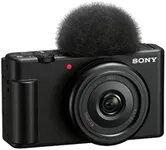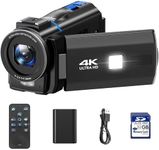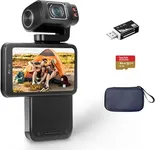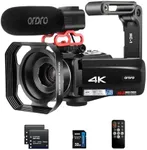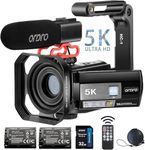Buying Guide for the Best Budget Camcorders
When choosing a budget camcorder, it's important to consider several key specifications to ensure you get the best value for your money. A camcorder is a great tool for capturing memories, creating content, or even for professional use on a budget. Understanding the key specs will help you make an informed decision based on your specific needs and preferences.ResolutionResolution refers to the number of pixels that make up the video image. Higher resolution means more detail and clarity. Common resolutions include 720p (HD), 1080p (Full HD), and 4K (Ultra HD). If you plan to use your camcorder for casual home videos, 720p or 1080p may be sufficient. However, if you want higher quality videos for professional use or future-proofing, consider a camcorder with 4K resolution.
Sensor SizeThe sensor size affects the camcorder's ability to capture light and detail. Larger sensors generally produce better image quality, especially in low light conditions. Common sensor sizes include 1/6-inch, 1/3-inch, and 1-inch. For general use, a smaller sensor may be adequate, but if you need better performance in various lighting conditions, opt for a camcorder with a larger sensor.
Optical ZoomOptical zoom allows you to magnify the image using the camcorder's lens, maintaining image quality. This is different from digital zoom, which can degrade image quality. Optical zoom ranges can vary from 10x to 50x or more. If you plan to record distant subjects, such as wildlife or sports events, a higher optical zoom will be beneficial. For everyday use, a moderate zoom range should suffice.
Image StabilizationImage stabilization helps reduce camera shake, resulting in smoother videos. This is especially important if you plan to record handheld or while moving. There are two types: optical and digital stabilization. Optical stabilization is generally more effective. If you anticipate a lot of movement while recording, prioritize a camcorder with good image stabilization features.
Battery LifeBattery life determines how long you can record before needing to recharge or replace the battery. Longer battery life is crucial for extended recording sessions, such as events or travel. Check the camcorder's battery specifications and consider purchasing additional batteries if needed. For casual use, standard battery life may be sufficient, but for longer projects, prioritize models with extended battery life.
Audio QualityGood audio quality is essential for clear sound in your videos. Look for camcorders with built-in microphones that offer noise reduction features. Some camcorders also have external microphone inputs, which can significantly improve audio quality. If audio is a critical component of your recordings, consider a camcorder with advanced audio features or the option to use an external microphone.
Storage OptionsCamcorders store video on internal memory, SD cards, or both. The amount of storage you need depends on the resolution and length of your recordings. Higher resolution videos take up more space. Ensure the camcorder supports expandable storage with SD cards, and consider the maximum supported card size. For frequent recording, having ample storage or the ability to swap out cards is important.
ConnectivityConnectivity options, such as HDMI, USB, and Wi-Fi, allow you to transfer videos to other devices or stream live. HDMI and USB ports are useful for connecting to TVs and computers, while Wi-Fi enables wireless transfer and remote control via smartphone apps. Depending on how you plan to use and share your videos, choose a camcorder with the necessary connectivity features.
